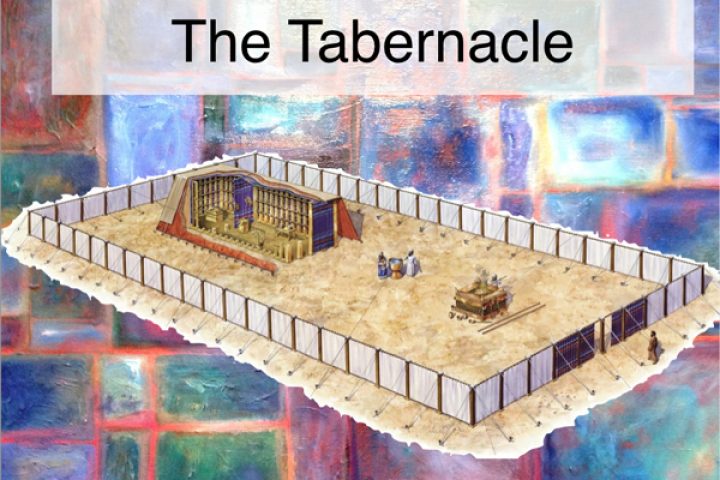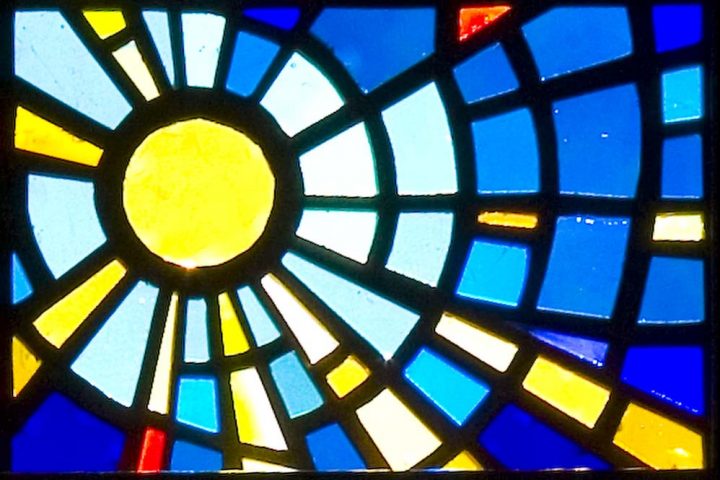Sermons by Bernard Bell (Page 6)
Who IS This Child?
Matt 1:1-17
Over the four Sundays of Advent we will follow Matthew’s account of the birth story of Jesus (Matthew 1–2). We’ll find answers to four questions about this newborn child. Who? Jesus Christ, son of David, son of Abraham. How? From a virgin through the Holy Spirit. Where? In Bethlehem. Whence? From Egypt to Nazareth. In each case this is in fulfillment of the Scriptures.
What’s In A Name?
Exod 33:18-34:9
At the Burning Bush, Moses asked God, “What is your name?” He gave the enigmatic reply, “I am who I am,” which he then clarified as “He is.” In Hebrew this name is Yahweh, usually rendered in English as “The Lord.” At Mt. Sinai, Moses asks God, “Please show me your glory.” Instead, God proclaims to him his name, Yahweh, the Lord, giving a description that became confessional for Israel.
God’s Face: Friend or Foe?
Exod 33:1-17
When you imagine God’s face, what do you see? A friendly face or an angry face? David prayed, “Hide your face from my sins… Cast me not away from your presence (face)” (Ps 51:9, 11). Many of us fear it’s the other way around: God hides his face from us but keeps our sins ever before his face. Maybe that’s because we’ve superimposed someone else’s face onto God’s face. For Moses, the Lord’s face (or presence) was all-important. The Lord used to talk with him face to face, as a man speaks to his friend. Moses wanted that presence to go with the people of Israel, despite their great sin.
Satisfied In Him Alone
Exod 32:15-35 Satisfied in Him Alone. Jealousy is usually a negative trait, describing inappropriate longings. But there’s one situation in which jealousy is appropriate: a marriage. Once a couple marry, their affections belong within the marriage. Transferring them outside the marriage should arouse jealousy. Israel transferred its affections to a golden calf, breaking the second commandment. God forbids making and bowing down to an image in the likeness of anything because he is a Jealous God. His name, even, is Jealous. God has won our affections and bound our soul fast. He wants us to be able to say of him: my love he owns, I have no longings for another, I’m satisfied in him alone.
Prone To Wander
Exod 32:1-14
Maybe some of you have made New Year’s resolutions. You’ve embarked on the year with renewed resolve to be different, to be better, to try harder, to achieve some goal. But how long do such resolutions last? The Israelites were full of resolve when they entered into covenant with the Lord: “All that the Lord has spoken we will do, and we will be obedient.” We return to Exodus to see how the Israelites are doing in their resolve. On top of Mt. Sinai Moses has been in the Lord’s Presence, receiving instructions for the people: “Let them make me a sanctuary, that I may dwell in their midst.” We turn to the foot of the mountain where we find the people experiencing Absence not Presence. Their resolve to live a life of faith collapses and they demand something they can see. We all, like them, are prone to wander, and so we pray, “Bind my wandering heart to Thee.”
The Face of Freedom: Born in Zion
Gal 4:21-31 Islam seems to be a daily topic in the media and conversations. But do we understand Islam and how we can relate to Muslims? Our study in Galatians this week centers on Abraham’s two sons, Isaac and Ishmael, and their two mothers, Sarah and Hagar. The apostle Paul presents a surprising spin on the OT story as it relates now to freedom in Christ. And because Ishmael, from whom the Arab race descends, will be a part of our study on Sunday morning, Bernard Bell will be sharing Sunday night on the topic of Islam. This is a rich opportunity to grow in our understanding of an important topic for our times.
The Promise of Freedom
Gal 3:15-29 Long ago God made a promise to Abraham: “In your seed shall all the nations of the earth be blessed.” Who is this seed and what is the blessing? The next passage in our summer series on Galatians (3:15-29) answers these questions. The seed is Jesus Christ. No matter what our identity, when we identify by faith with Jesus and his faithfulness even unto death, we receive the promised blessing, the gift of the Holy Spirit. We are adopted into God’s family as the true children of Abraham, the man of faith. We have a new identity: we are “in Christ,” in whom God is bringing everything together. I encourage you to read Galatians 3 and think about your identity: How do your define yourself and what marks your identity? On Sunday evening we will have a forum to consider the implications of this new identity for our understanding of Israel and the Church.
Sacred Order
Exod 31:1-18 The tabernacle gave Israel a sacred geography. The Sabbath gave it a sacred calendar. The two tablets of the law gave it a sacred ethic. In these three ways the Lord gave his people order after the harsh disorder of slavery in Egypt. Freedom was not freedom from order, but order itself: order in space, order in time, and order in life. How should we understand sacred space, sacred time and sacred ethics today? Do we have a sacred order that gives us freedom?
Consecrated to God
Exod 29:1-46 017 is the 500th anniversary of the Reformation, dated to the moment when Martin Luther nailed his Ninety-Five Theses to the door of the Castle Church in Wittenberg. Luther recovered many Biblical truths that had been lost by the church in the previous thousand years. Among these was the idea of the priesthood of all believers. The medieval church divided Christians into a spiritual class of priests and monks consecrated to God, and the secular laity. In ancient Israel Aaron and his sons were ordained and consecrated to the Lord to serve him as priests in his sanctuary. But this exclusive priesthood did not carry over into the New Testament church. Instead, all God’s people are priests. We are “being built up as a spiritual house, to be a holy priesthood, to offer spiritual sacrifices acceptable to God through Jesus Christ” (1 Peter 2:5).
Jesus our Great High Priest
Exod 28:1-39 Continuing our series on the Tabernacle, we consider the high priest. He was the only one able to pass through both screens and the veil to enter into the Holy of Holies. He entered only once each year, on the Day of Atonement. Dressed in an elaborate set of holy garments, he carried on his heart and on his shoulders the names of the twelve tribes of Israel, so that, represented by him, they too were remembered before the Lord. But each year he had to come back out of Holy of Holies. Jesus, though, as our great high priest, has entered permanently into God’s presence, a minister in the holy places. In him, we are remembered permanently before the Lord. Our names are written on his hands.
Exclusion and Embrace
Exod 26:1-37 & 27:9-19 We return to the tabernacle for the month of February. This Sunday we will consider the tent and the courtyard which housed the seven items of furniture. God instructed Israel to make the tabernacle as a sanctuary so he could dwell in their midst (Exodus 25:8-9). But it was a dangerous thing for a holy God to dwell in the midst of a sinful people. They needed protecting from each other. Two screens and a veil progressively excluded people from approaching closer to God. They were excluded on the basis of ethnicity, of gender, of family background, and of physical perfection, until only one person was left who could enter the Most Holy Place, and he only on one day of the year. But now “we have confidence to enter the holy places by the blood of Jesus, by the new and living way that he opened for us through the curtain” (Hebrews 9:19-20). All the barriers are gone: “There is neither Jew nor Greek, there is neither slave nor free, there is neither male nor female, for you are all one in Christ Jesus” (Galatians 3:28). Exclusion has changed to embrace. God invites all to enter into his hospitality in Christ.
Stories and The Story
Stories and The Story
The Bible contains many stories, some familiar, others unfamiliar. Our new art exhibit depicts many of these stories. The Bible as a whole tells a single story, into which these individual stories fit. Much of this overarching story is depicted in the window which was installed ten years ago. To start the new year we will consider God’s story and how it intersects our story.


